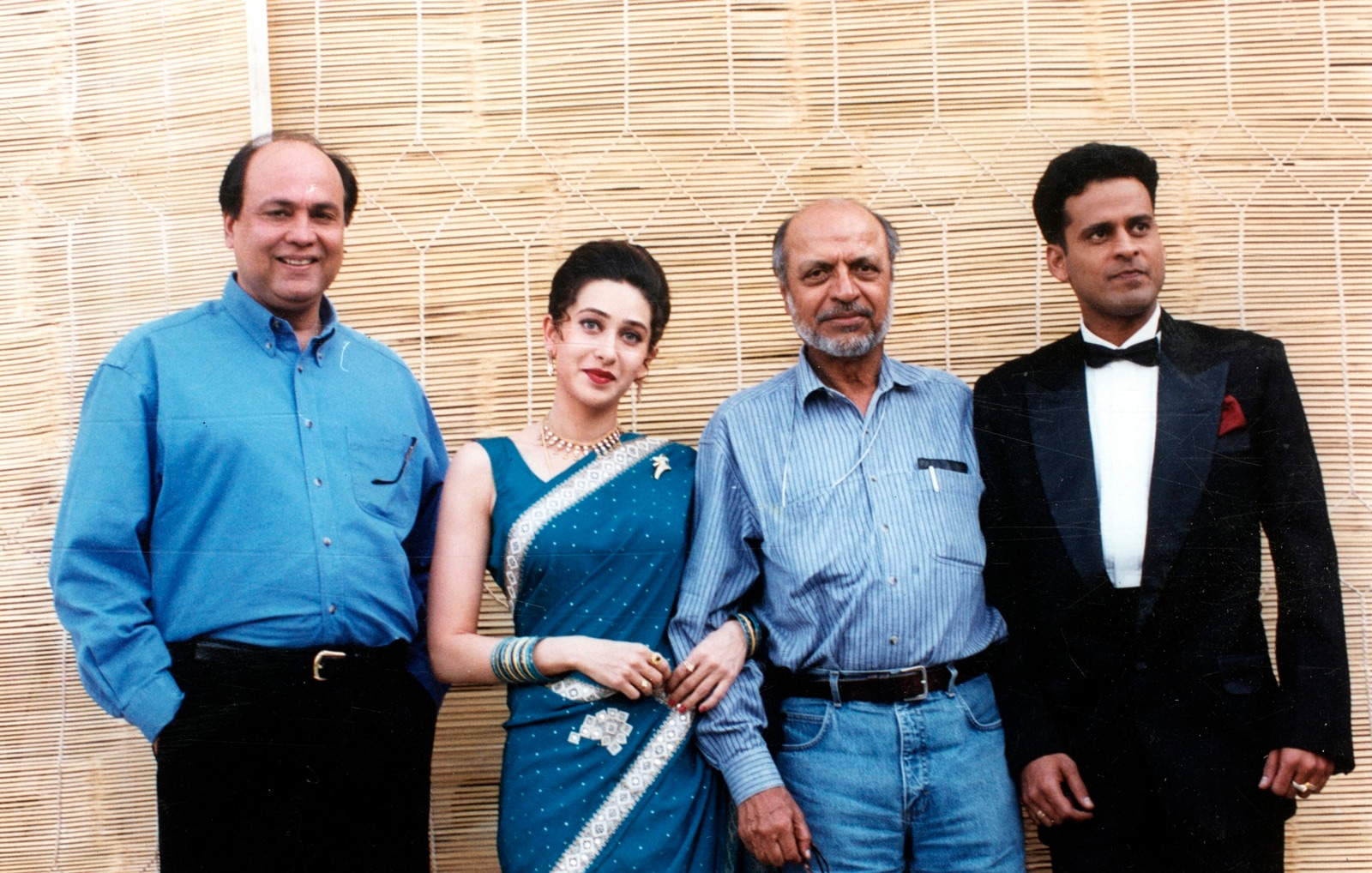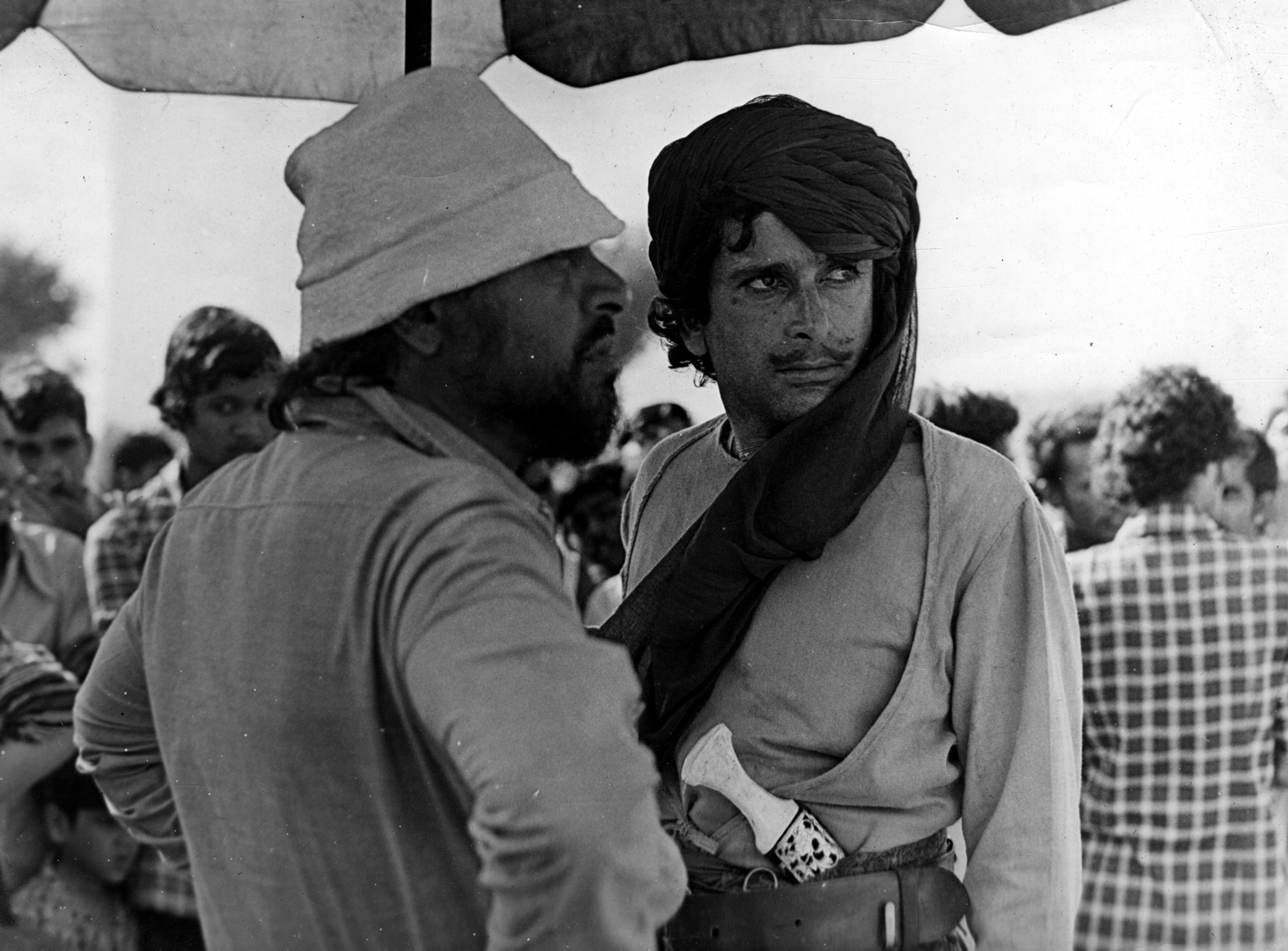It is an irreparable loss. We have lost a rare voice who said it like he saw it, through his 50 years of active filmmaking, full of passion and erudition.
He was also one of the very few filmmakers who wore their fame so lightly, with such elegance. It was a quality that marked all our conversations through the years, the last of which was an exchange this May when his Manthan, India’s first crowdfunded film, was showcased at the Cannes film festival. After having begun by apologising for his “failing memory”, he proceeded to regale me with anecdotes full of warmth and mischief, and we rang off promising to speak again soon. Now that will never be.
He had been ailing, and been extremely unwell on and off, but a joyous image from his 90th birthday just two weeks back, with Shabana Azmi and Naseeruddin Shah on either side, left us feeling as if there was still time. Time for Benegal to make yet another recovery, and perhaps be well enough to add to his extensive filmography, which began with the 1974 Ankur, and stretched all the way to the 2023 bio-pic of Bangabandhu Sheikh Mujibur Rahman, Mujib: The Making Of A Nation.

The essence of Benegal’s final film reminded one of the brilliant nation-building exercise he pulled off with his Bharat Ek Khoj, the 1988 Doordarshan series he wrote and directed, based on Jawaharlal Nehru’s opus The Discovery Of India. It is an origin story which covers a staggering 5,000 years, from the birth of a subcontinent to the creation of an Independent India. Calling it a work of seminal importance has always felt right.
Similarly, calling Ankur a game-changer, an overused phrase glibly trotted out for anything and everything, has never felt like an exaggeration, because that is exactly what it did. At a time when formulaic lost-and-found multi-starrers were ruling (Nasir Hussain’s 1973 Yaadon Ki Baraat), and Amitabh Bachchan was beginning his Angry Young Man journey (his Zanjeer, also out in 1973, exploded off the screens), Ankur was the seedling that Hindi cinema desperately needed.
Benegal brought the advertising man’s gift of being economical yet impactful into his story-telling, which broke away from the loud, saccharine melodramas which made their way into theatres those days, to give us a whole other universe, not just in terms of themes but also actors. If Benegal hadn’t existed, freshly-minted FTII graduates like Shabana-Naseer-Om ( Puri) and a bunch of others (Amrish Puri, Kubhushan Kharbanda, Rajit Kapoor), would have had to invent him.
He began as he meant to go on. Ankur made Azmi, who learnt how to sit like a village woman, even though her perfectly arched eyebrows looked like they came from an urban parlour, an overnight star. He followed that up with Nishant (another searing story of the terrible inequality between class and caste), and Manthan (a terrific recounting of the milk revolution, led by the redoubtable Dr Verghese Kurien) in which Smita Patil blazed across the screen with Girish Karnad and Naseer.
He took us to the places where cinema rarely went, especially after the candyfloss 60s: into villages, casting a critical lens on power structures within those rural landscapes, placing the marginalised people that Hindi cinema had forgotten in the centre of the narrative. Even with his later films, of which the Goa-based comedy of manners, Trikaal, and the Rajit Kapur-Pallavi Joshi starrer Sooraj Ka Saatvaan Ghoda remain firm favourites, his ability to skewer social hypocrisies remained unparalleled.
most read
The other celebrated pioneers of the parallel cinema movement, like Mani Kaul and Kumar Shahani, remained niche pleasures. But Benegal, while staying firmly outside Bollywood’s song-and-dance-laden style, managed to use big stars to buttress his movies, which were never afraid to put out the message. His 2001 Zubeida gave Karisma Kapoor cred; Kapoor in turn made an eye-catching pair with Manoj Bajpayee, who had never played a royal before, and the rajwadas were never the same again.

But one of my all-time favourites has to be Benegal’s own multi-starrer, the 1981 Kalyug which reunited him with Shashi Kapoor. The actor, another big star who fit right in with Benegal’s vision of broadening the idea of mainstream cinema, starred in his 1857 mutiny saga Junoon (1978); in Kalyug, a modern-day adaptation of the Mahabharata, he starred with Rekha and Raj Babbar, as well as Anant Nag, Kulbhushan Kharbanda, Akash Khurana, and Victor Banerjee.
I could go on, and the day will never end. Today we mourn Benegal’s passing, and celebrate the man, and his movies, which created a map of India which didn’t exist in quite the same insistent, gentle yet piercing manner, before he came on the scene. Even his most sombre films were shot through with flashes of optimism. And that, sometimes, is enough. Smiling through tears? Shyam Babu, as he was loving called, would approve.
shubhra.gupta@expressindia.com
Why should you buy our Subscription?
You want to be the smartest in the room.
You want access to our award-winning journalism.
You don’t want to be misled and misinformed.
Choose your subscription package



